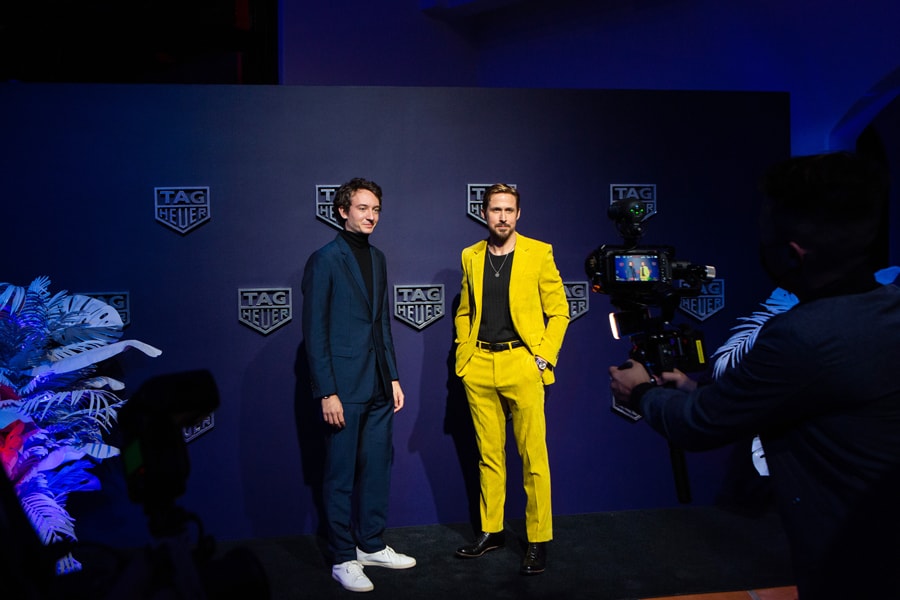
The newest power player in luxury's first family
Frédéric Arnault, the 26-year-old chief executive of TAG Heuer and the fourth child of Bernard Arnault, may be the youngest CEO of a luxury watch brand in the world
 From left, Frédéric Arnault, the chief executive of TAG Heuer, with Ryan Gosling at a TAG Heuer event in Beverly Hills, Calif., Oct. 7, 2021. Arnault is making big moves as chief executive of TAG Heuer. Just don’t mention the show “Succession.” (Alex Welsh/The New York Times)
From left, Frédéric Arnault, the chief executive of TAG Heuer, with Ryan Gosling at a TAG Heuer event in Beverly Hills, Calif., Oct. 7, 2021. Arnault is making big moves as chief executive of TAG Heuer. Just don’t mention the show “Succession.” (Alex Welsh/The New York Times)
PARIS — Frédéric Arnault, the 26-year-old chief executive of TAG Heuer, may be the youngest CEO of a luxury watch brand in the world. He may be the fourth child of Bernard Arnault, the third richest man in the world and the chairman of LVMH Moët Hennessy Louis Vuitton, the largest luxury conglomerate in the world (owner of TAG Heuer as well as Dior, Givenchy, Bulgari and more than 70 other brands).
He may also be the fourth child to join that family business. He may have very grand ideas about how big his particular watch brand can become. And his father, 72, who is known for his aggressive acquisition tactics, may have famously dynastic intentions when it comes to the group he has built.
But do not mention the word “Succession” within anyone’s earshot. (Well, not unless you want to invite a lot of eye rolls and annoyance.)
As Frédéric becomes the latest Arnault to enter the spotlight, thanks to a very public partnership with actor Ryan Gosling that was introduced earlier this month at a celebrity-packed party in Beverly Hills — Arnault’s first big in-person event since taking command of TAG Heuer last year — the family wants to be very clear that this is not a story of Kendall Roy or Roman Roy or anyone remotely Roy-like.
No way. Uh-uh. No matter how much the outside world wants that to be the case. Which is why the newest power player in luxury’s first family is finally ready to open up.
©2019 New York Times News Service







